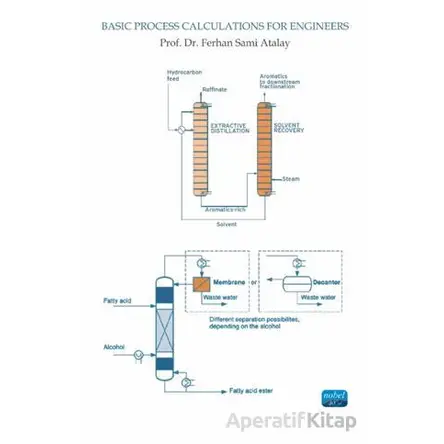Basic Process Calculations For Engineers - Ferhan Sami Atalay - Nobel Akademik Yayıncılık
Basic Process Calculations For Engineers - Ferhan Sami Atalay - Nobel Akademik Yayıncılık
The discipline of engineering involved with the design and implementation of processes that affect the chemical structure, energy content, or physical properties of substances is known as process engineering. As a result, process engineers must be prepared with the following skills, which include understanding of mathematics, science, and engineering:
The ability to represent and solve the mathematical modeling of a specific problem
The capacity to design a certain process or facility while keeping costs, safety, and the environment in mind
Investigating and dealing with a particular issue or problem, as well as preparing, carrying out, and evaluating experiments to achieve this goal.
Basic process calculation includes the use of material and energy balances to determine process variables such as flow, composition, temperature, and pressure, as well as the development of model equations that provide relationships between known process variables and unknown variables in the analysis of physical, chemical, and biological processes that produce chemical substances.
In the first part of the book, the process and its variables are defined, the concept of degree of freedom and problem solving techniques are presented. The essential principles and calculations of mass and energy balances for steady state are presented in the second and third chapters, as are sample problems relating to their applications in chemical and bioprocesses.
The fourth chapter discusses a plant that produces diethyl ether from ethyl alcohol and shows how to use mass and energy balances to determine the flows required for the plant design.
The book provides comprehensive details on mass-energy balances in unsteady processes with time-dependent process variables, as well as sample problems illustrating its applications to reactions engineering, process dynamics, and bioprocesses.
In the final section of the book, computer-aided process analysis solutions are presented as well as sample problems for using Polymath software in steady and unsteady process analyses.
As a result, this book has been written to be a valuable resource for process engineers interested in process design, simulation, and controls in industry, as well as chemical, food, control, and bio engineering education.
Yorum bulunamadı





